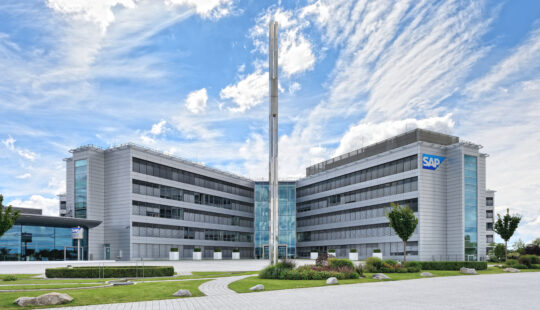Germany goes to the polls in just a few days’ time. But whichever parties form the country’s next coalition government, they need to steer a new course.
As CTO and member of the SAP Executive Board, a number of topics are especially close to my heart: digital transformation, education, and promoting sustainable business and development.
Digital Transformation
Germany is falling further and further behind in the technology race. In the Digital Riser Report 2021, published by the Berlin-based European Center for Digital Competitiveness, Germany ranked only third to last in the G20 list of the world’s leading advanced and emerging economies.
Fundamental structural changes are required to massively accelerate Germany’s digital transformation. Steps are being made in the right direction. One is the Online Access Act, under which, by the end of 2022, German citizens will be able to access around 600 digital administrative services — allowing them, for example, to apply for state-funded student loans, parental leave benefit, and birth certificates online. It’s a start. But it’s not enough — a more ambitious approach is required.
Germany’s federal system is a pillar of its success. But the coronavirus pandemic is a reminder that that system can work against us at times too. Germany needs a clear digital agenda that federal, state, and local governments are jointly committed to. Because there’s a seemingly endless list of subjects to address: digitalization in the public sector, cybersecurity, ensuring a secure cloud infrastructure, development of open standards (“public money – public code if no standard software is available”), interoperability, network expansion, high-speed Internet, the use of artificial intelligence (AI).
Who better to drive this agenda than a new federal ministry devoted entirely to digital transformation? But just as crucial as establishing a new digital ministry is taking action to bring about the necessary cultural change.
Education
Let’s face facts: Our education system, just like our public sector and healthcare systems, works pretty much in the same way it did in 1997.
Take STEM jobs, those in science, technology, engineering, and math: According to the German Economic Institute, just over 1 million women work in STEM in Germany, occupying only 15.4% of the total number of posts in that field. But with 76% of working-age women in employment in Germany, that figure should be much higher. We have to strive for better! We need to promote STEM careers much earlier, and not wait until young people start making their vocational and degree choices. If we want to get children and young people – especially girls and young women – excited about STEM careers, we need to reach them right when they start school or, even better, when they’re still at kindergarten or nursery school.
Without excellent education and research, we can say goodbye to developing the digital technologies of the future. Knowledge is Germany’s most important resource. We should be up there with the world’s best! But reality tells a different story. In a PISA in Focus paper published in 2020, Germany ranked 76th (out of 78!) when it came to the availability of professional resources for teachers to learn how to use digital devices. And yet there is still so much to do here too, in addition to teaching about technology, such as promoting social and intercultural skills, empathy, teamwork, creativity, and strategies for life-long learning.
As a land of technology, we should expect to be nothing less than world-class — just like we want to win the FIFA World Cup again next year!
Supporting Sustainable Business and Development
No one disputes that an innovation- and industry-friendly economic policy must be sustainable, European, or — better still — transatlantic or even global. It is vital that business and government work in unison. The shocking natural disaster that hit Germany recently is a reminder of why. Many of those affected by flash flooding lost everything and some communities will take years to rebuild.
Certain countries are more responsible for climate change than others. Germany is the world’s sixth-largest emitter of greenhouse gases. As such, we can and must make a significant contribution to reducing carbon emissions. And each and every one of us can play our part here.
Following a ruling by the country’s constitutional court in April 2021, Germany has brought forward its carbon neutrality deadline by five years to 2045. SAP is aiming to be carbon-neutral by the end of 2023. If global enterprises can do it, then the state should at least pursue more ambitious goals.
Conclusion
The last 18 months have seen us filling out contact detail forms in restaurants and faxing documents to local government offices. The pandemic has shown us clearly, and at times painfully, that we have a long way to go. Implementing a clear digital and technology strategy will require a concerted effort among technological promotion, administration, education, health, and data protection — to name just a few. This strategy is therefore central to Germany’s future.
It really doesn’t need a Juergen Mueller to point this out. But my role means I meet many entrepreneurs, managers, employees — people who are working to build a future worth living. What unites them is the desire for a digital “jolt.” And I’d like to encourage every effort toward making this happen. I am sure Germany’s business community will be good partners in this endeavor too.
My hope is that the next German government will deliver a clear, bold strategy. I want to see us tackle the technological transformation in Germany with determination and the right mindset.
Juergen Mueller is CTO and a member of the Executive Board of SAP SE.



